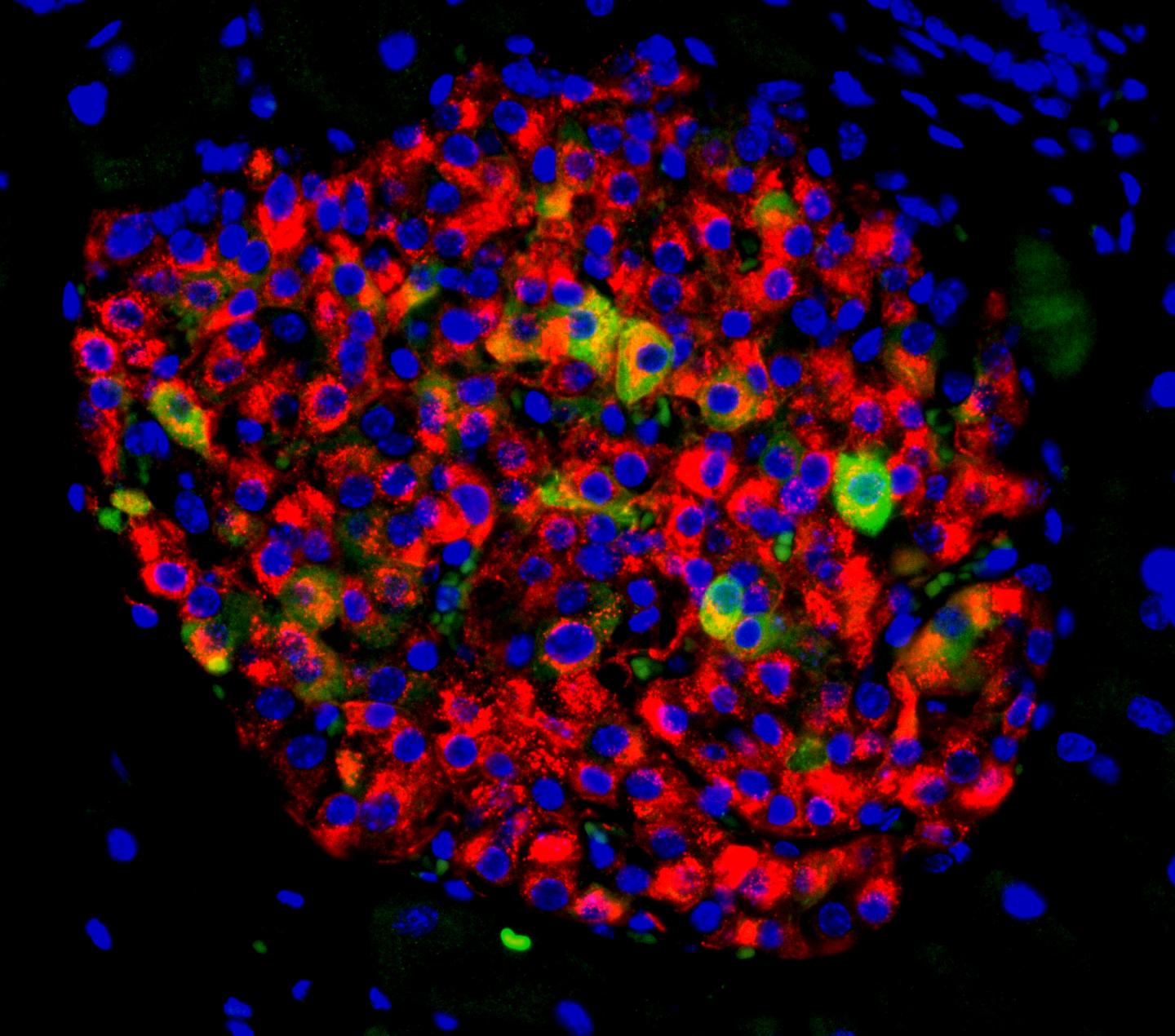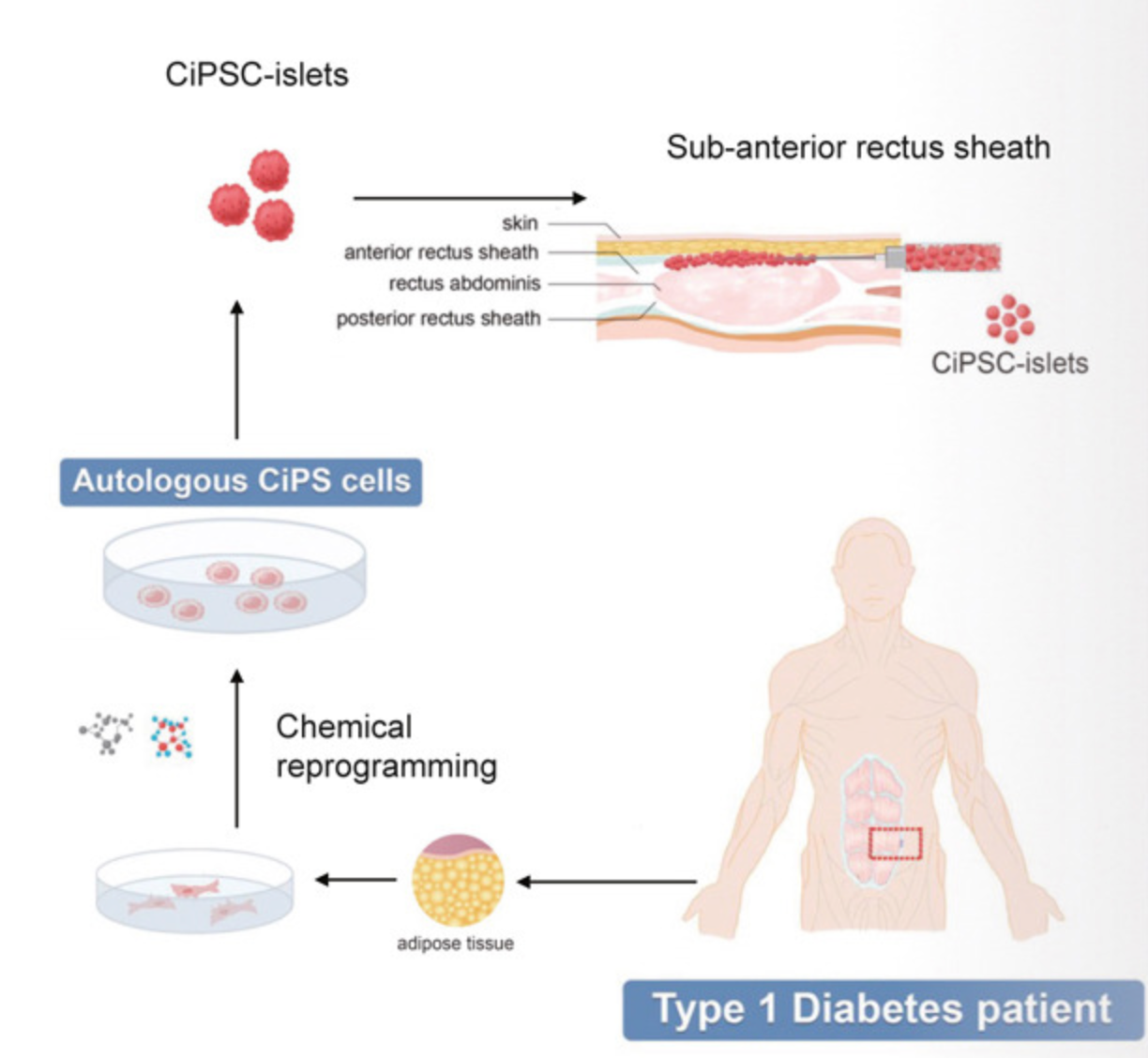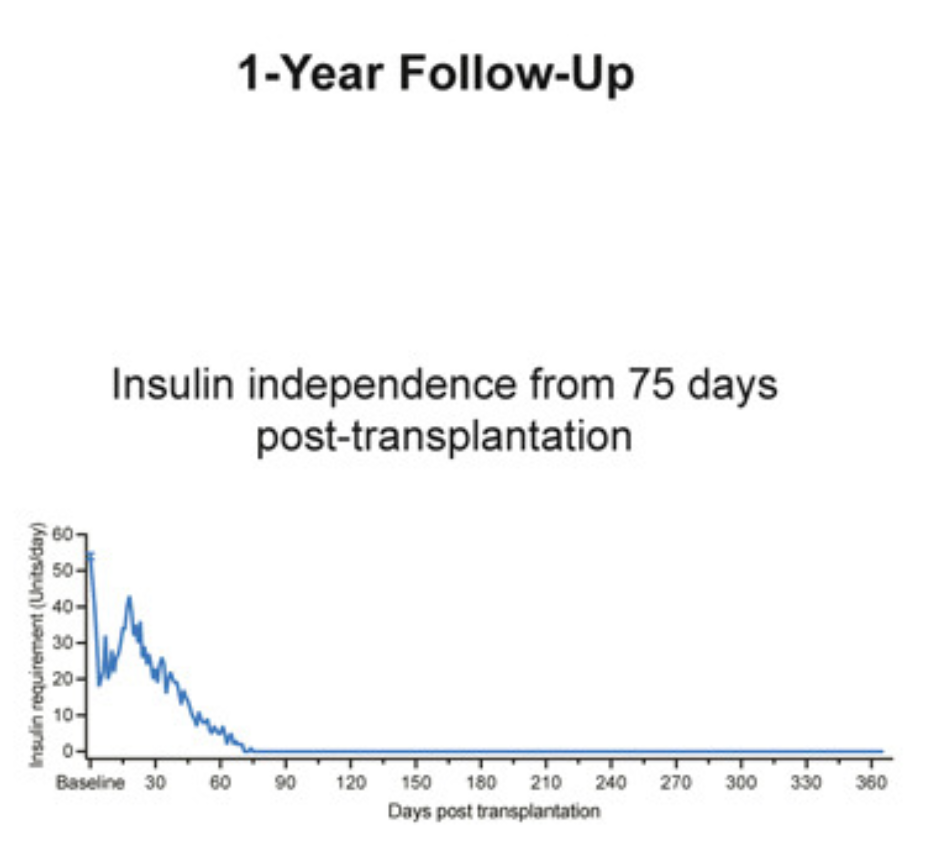Woman’s diabetes reversed after world-first stem cell transplant
Researchers report ‘no indication of abnormalities’ and ‘functional reversal’ of patient’s diabetes a year after procedure
Your support helps us to tell the story
From reproductive rights to climate change to Big Tech, The Independent is on the ground when the story is developing. Whether it's investigating the financials of Elon Musk's pro-Trump PAC or producing our latest documentary, 'The A Word', which shines a light on the American women fighting for reproductive rights, we know how important it is to parse out the facts from the messaging.
At such a critical moment in US history, we need reporters on the ground. Your donation allows us to keep sending journalists to speak to both sides of the story.
The Independent is trusted by Americans across the entire political spectrum. And unlike many other quality news outlets, we choose not to lock Americans out of our reporting and analysis with paywalls. We believe quality journalism should be available to everyone, paid for by those who can afford it.
Your support makes all the difference.Chinese scientists claimed a breakthrough reversal of a patient’s type 1 diabetes in a world-first procedure where she was injected with stem cells harvested from her own body.
In type 1 diabetes, some people’s own immune system starts attacking their pancreas, as early as from their childhood, damaging the islet cells responsible for making insulin.
Until now, any long-term cure for the condition has been via transplantation of a pancreas, and in the short term most type-1 diabetes patients rely on insulin injections to control blood sugar.
Emerging studies over the last decade have pointed to a potential cure using stem cells, which have the special ability to grow and differentiate into different types of cells.
Scientists previously developed a breakthrough procedure in which a type of stem cell, which can be nurtured and grown into any tissue, is used to replace tissues in the body.

The new medical trial, described in the journal Cell last week, involved first extracting cells from a 25-year-old female patient from Tianjin, China, and reverting them to their unspecialised state.
These cells could then be programmed to grow into islet cells of the woman’s pancreas and injected into her abdomen.
In the latest attempt, researchers modified the standard procedure by exposing the stem cells to a group of molecules called transcription factors to facilitate their differentiation into islets.
They then injected 1.5 million of the islet cells they had grown into the patient’s abdomen.

About two and a half months later, clinicians found that the patient was producing enough of her own insulin.
“The patient achieved sustained insulin independence starting 75 days post-transplantation,” researchers wrote in the study.
Over a year, the procedure “restored glycemic control” in the patient, functionally reversing her type-1 diabetes, they said, adding that there was “no indication of transplant-related abnormalities.”
Eric Topol, molecular medicine professor and director of the Scripps Research Translational Institute, called the medical trial “an exciting advance in Type 1 diabetes”.
“First person to receive her own stem cells, reprogrammed with transcription factors, to reverse it!” Dr Topol, who was not involved in the research, said in a post on X.

However, researchers also cautioned that the patient had to be monitored for a longer duration to better validate the effectiveness of the method.
They say the patient was already receiving drugs to suppress her immunity due to a prior liver transplant.
It remains to be seen if the 25-year-old’s immune system might attack her new islet cells again as it did to cause her type 1 diabetes in the first place.
Scientists called for further clinical studies assessing the benefits of stem cell transplantation in reversing type 1 diabetes.
Join our commenting forum
Join thought-provoking conversations, follow other Independent readers and see their replies
0Comments